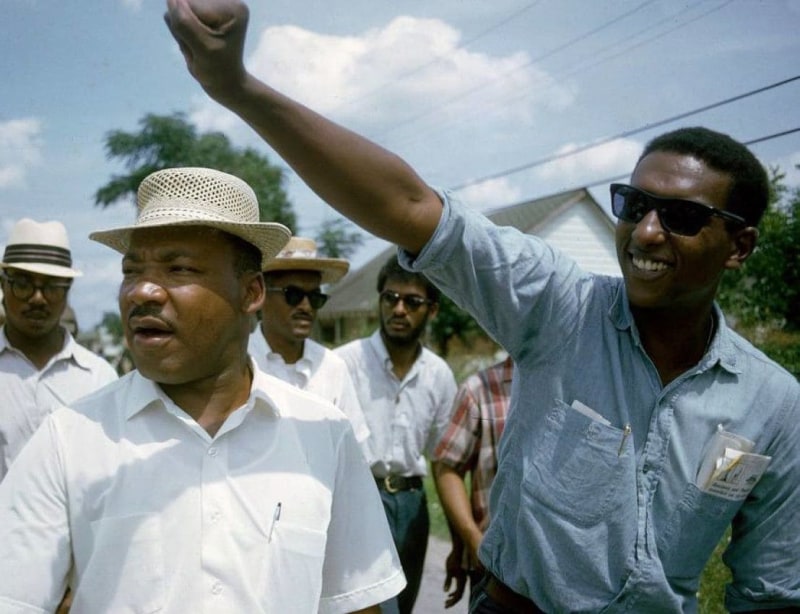
It’s easy to make another documentary that further elevates the already-bolstered life and work of the Rev. Martin Luther King Jr., who was assassinated 50 years ago this week in Memphis, when he was just 39 years old. The trickier task is to make a documentary that not only feels new but also brings King briefly back down to earth. Sometimes the best way to remember someone is as a human, faults and all.
Such is the careful result of “King in the Wilderness,” Peter Kunhardt’s empathetic and freshly revealing documentary airing Monday on HBO. Zeroing in on the last few years of King’s life, it acquaints viewers with a leader privately mired in self-doubt, who is physically and mentally exhausted by his own movement and challenged by the contradictory forces that threaten to undermine the progress already made. “The most difficult time in his life was the 18 months before the assassination,” says Clarence Jones, King’s personal lawyer.
Without any biographical sketching or preamble, “King in the Wilderness” deliberately skips ahead to a low moment in King’s story — well after the 1963 March on Washington, after Selma. Almost symbolically, the archival footage seen here is no longer the crisp black-and-white film of King’s zenith; overnight, it seemed, a different kind of ’60s arrived, in a vivid yet imperfect rainbow of color films made with herky-jerky handheld cameras.
African American activism began to run counter to King’s resolute message of nonviolence, and it was all he could do, from 1966 to 1968, to stay the course he charted. As others urged forceful tactics, and riots became commonplace in headlines, King was surprised to find himself being occasionally heckled by black audiences, such as when he traveled to Los Angeles after the 1965 Watts riots.
Through interviews with those who worked closely with him (including Andrew Young, Marian Wright Edelman, Jesse Jackson and Xernona Clayton), “King in the Wilderness” shows us a man who was accustomed to commanding respect and eliciting scorn with just about every move he made, including his decision to refocus the work of the Southern Christian Leadership Conference from the South to the North, to better concentrate on urban issues.
The persistence of poverty preoccupied King and provided a vision of the work ahead. He believed that without economic equality, or some hope of it, there could never be such a thing as racial or legal equality. On that note, he delivered a stirring address at New York’s Riverside Church in April 1967 that deplored the Vietnam War and economic injustice. The socialist overtones set off more alarms for those already secretly spying on King’s activities, including FBI Director J. Edgar Hoover, who amassed a damaging file on King that included alleged affairs and dubbed him “an immoral opportunist.”
Edelman recalls that just months before his death, King was “depressed,” but encouraged when Robert F. Kennedy and others told him to “bring the poor to Washington” for a march. King hoped that all races — black, Hispanic, white Appalachian — would join to work against poverty. At the same time, some of his colleagues urged him to take a sabbatical; he had been working nonstop for more than a decade. “It’s almost as though he saw death as an escape,” Young says. “He could not escape the way we wanted him to escape.”
Joining Memphis sanitation workers for a strike in March 1968 (memorably defined by the workers’ distinctive “I Am a Man” signs), King was devastated when the protests turned violent before his eyes. But he returned a week later — even, as Clayton recalls, his children blocked the front door and banged on the hood of the car as it backed down the driveway, begging their father not to go. (“What in the world happened to these kids? They must be trying to tell me that they’re missing me more,” she remembers a baffled King saying as they drove to the airport.)
That sense of doom runs through “King in the Wilderness,” but also a sense of calm that characterized King in his final days. He told some of his friends, including Harry Belafonte, that he had made peace with death. He spoke of the work that would continue after he was gone. And ever so gently and movingly, the film begins to raise its subject back up to a towering state of wisdom and foresight.